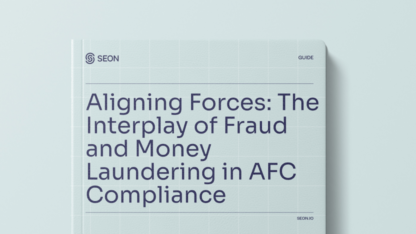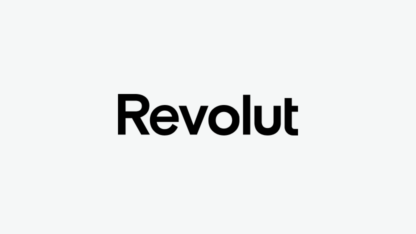Whether you are a forex exchange or broker, KYC regulations dictate that you must know your customers.
Let’s see how to do it right.
Why Is KYC Important for Forex Trading Companies?
KYC, short for Know Your Customer/Client, is a legal requirement for fintechs and trading platforms.
It forces companies dealing with the exchange or trade of financial instruments (such as forex) to verify who they are working with – usually by logging a first and last name, home address, age – and sometimes additional, optional elements of KYC verification.
Failing to comply with these legal mandates can spell legal trouble for your brokerage or foreign currency exchange. If you’re in the process of setting up a new forex trading business, you may simply be denied a license.
If you don’t deploy the proper controls at your existing organization, this is what you risk:
- heavy compliance fines
- damaged business reputation
- potential removal of license
- fraudsters infiltrating your platform
- higher fraud rates in the future, such as chargebacks
Of course, dealing with any of the above can additionally be a real drain on your time and resources, which can negatively impact your bottom line (legal fees, wasted work hours, dealing with customer service requests, etc.)
KYC Regulations for Forex Platforms
A key challenge for forex platforms is to meet KYC requirements which vary from one country to the next. In theory, the basics shouldn’t change too much as you need:
- their full name
- their home address
- their age
- ID verification to prove the above
But because forex or foreign exchange platforms and brokers tend, by nature, to attract international customers, they have to consider regional variations. For instance:
- Data protection laws: You might have to consider local data privacy and residency rules, such as the GDPR or PSD2 compliance in Europe, which may make deploying KYC more challenging.
- Variations on ID documentation: In the US, a social security number is considered personally identifiable information (PII). In Italy, most citizens’ IDs are still printed on paper. You will need KYC software that can check all possible variations, whether it’s in the APAC, EMEA or NA regions.
- Emerging country customers: Checking an ID could be a challenge in emerging countries where personal and financial data is hard to come by.
Then, there are the added challenges that come with creating friction for your customers – not to mention the fact that KYC checks aren’t foolproof. In fact, most fraudsters will know exactly how to bypass them using techniques such as synthetic identity fraud.
Partner with SEON to reduce fraud rates in your business with real time data enrichment and advanced APIs.
Ask an Expert
How Do These Regulations Affect Forex Trading?
Like with any kind of compliance, KYC in forex trading adds friction to the user onboarding experience.
Even if you pride yourself on letting customers quickly access FX to trade it worldwide, you still have to add obstacles to the signup process to screen your users.
While this increases security, it also increases churn, which may see potential customers turn to competitors with a smoother onboarding process.
But there are potential workarounds for this – below, we will look at dynamic friction as a solution.
How Do You Implement KYC in Forex Trading?
Just like with any KYC procedure, you have to find ways to understand who your users are as soon as possible.
Here are your options:
- Manually check IDs: Having your in-house team manually check identity documentation is a laborious process, which slows your business down, creates friction, and may lead to false positives due to human error.
- Build in-house solutions: An expensive option that may help with data sovereignty but demands continuous effort from a dedicated team of risk officers and developers.
- Deploy third-party ID verification services: The solution of choice for most FX trading platforms. It outsources the work of developers (only requiring an API integration) and automates the verification process. False positive rates and friction may still be high depending on the verification method (video verification, for instance, is notoriously finicky and easy to fool).
- Deploy pre-KYC checks: An alternative way to save on expensive KYC costs. Pre-KYC checks may also get to filter out bad users faster, and allow good ones with fewer checks to reduce friction. Do keep in mind that you will have to run KYC following these checks, too.
Key, of course, is to select the solution that makes the most sense for your FX trading business.
The Benefits of Pre-KYC Checks in Forex Trading
Pre-KYC verification helps minimize KYC costs, reduces friction and churn where possible, and even lets you onboard more good users by reducing false positives.
This type of check allows you to utilize the power of dynamic friction, a type of risk-based traffic lights system that will:
- Funnel all good users to the minimum possible amount of KYC required.
- Block those who are shown to be fraudsters outright, so you don’t have to pay to run KYC verification on them.
- Implement high-level KYC for those suspicious users who are not clearly bad actors – so you can check if they are perhaps a false positive.
As a result, the ratio of good to bad KYC checks will rise, saving you costs that add up quickly.
Top 3 Custom Rules for KYC in Forex Trading
Fraud rules are the best weapon in your arsenal against identity fraudsters. Those who want to fool your KYC process tend to follow similar patterns. Here is how you spot them.
#1: Look for a Lack of Social Media Profiles
As the world becomes increasingly social, it makes less and less sense for a legitimate online user not to have any social media profiles. While it doesn’t necessarily mean they are fraudsters, such a finding should raise red flags.
The reason fraudsters don’t have social profiles? They generate new email addresses for almost every scam. Signing up to social media and online platforms with them is not something fraudsters have a reason to do – and even if they did, it is a pain to recreate for every fake persona.
Instead, their goal is to create as many online accounts as possible in order to access your FX trading service and take advantage of sign-up bonuses, conduct money laundering, or any number of other schemes.
There are various ways to check for a social profile. You can manually look for their accounts based on the first and last name you capture as part of your KYC process. Or you can see if an email address or phone number is linked to the profiles.
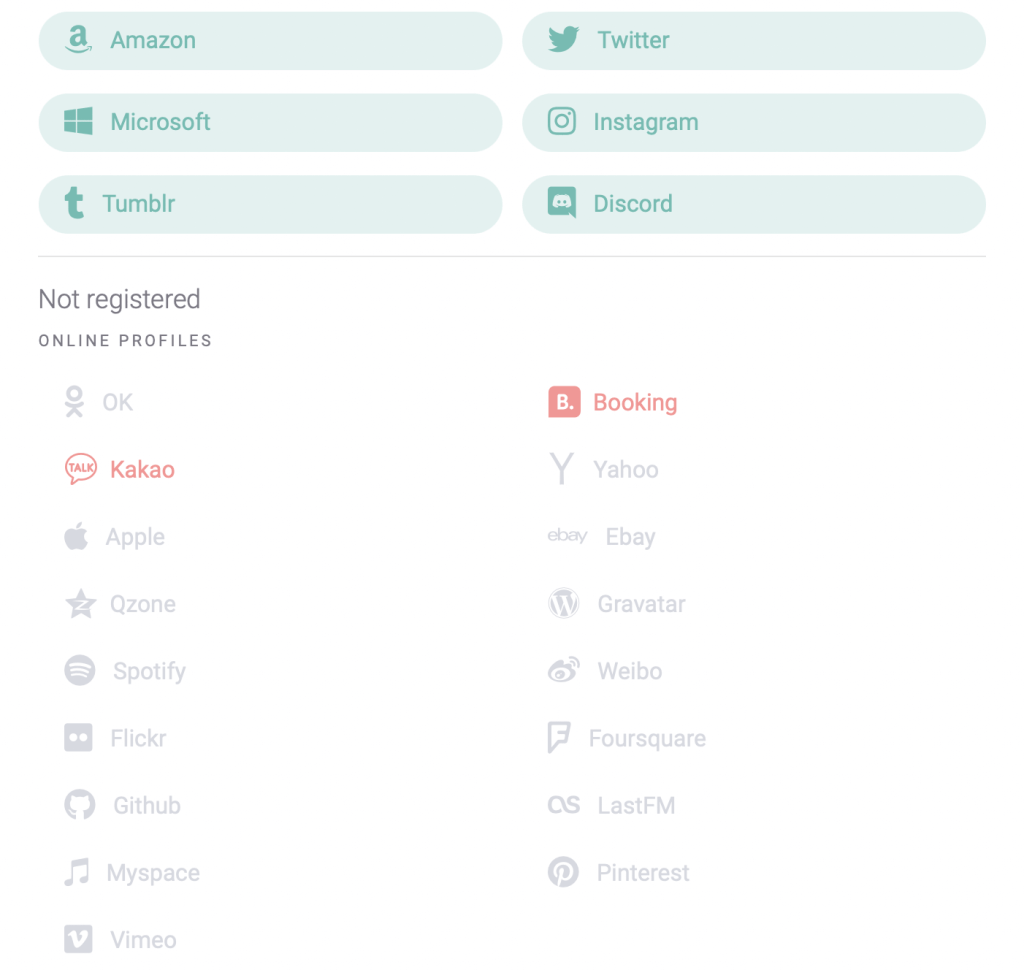
The latter has a tremendous advantage: It delivers results in real-time, automatically and without friction.
In essence, a social media lookup is an invisible pre-KYC check that will instantly let you know if you’re looking at a suspicious user or not.
Partner with SEON to stop fraudsters, optimize the customer journey and identify VIPs while staying compliant.
Ask an Experto
#2: Flag Suspicious IP Data
Your FX trading customers’ IP addresses can also point to good or bad users. It’s another tool to deploy pre-KYC checks, to ensure that they are:
- in the right country
- not attempting to hide their connection’s true origin
For instance, customers using VPNs, Tor or proxies could be trying to fool your KYC checks.
It’s important to look at the IP’s geolocation, but also potential spoofing attempts – not doing this could make you non-compliant with KYC procedures.
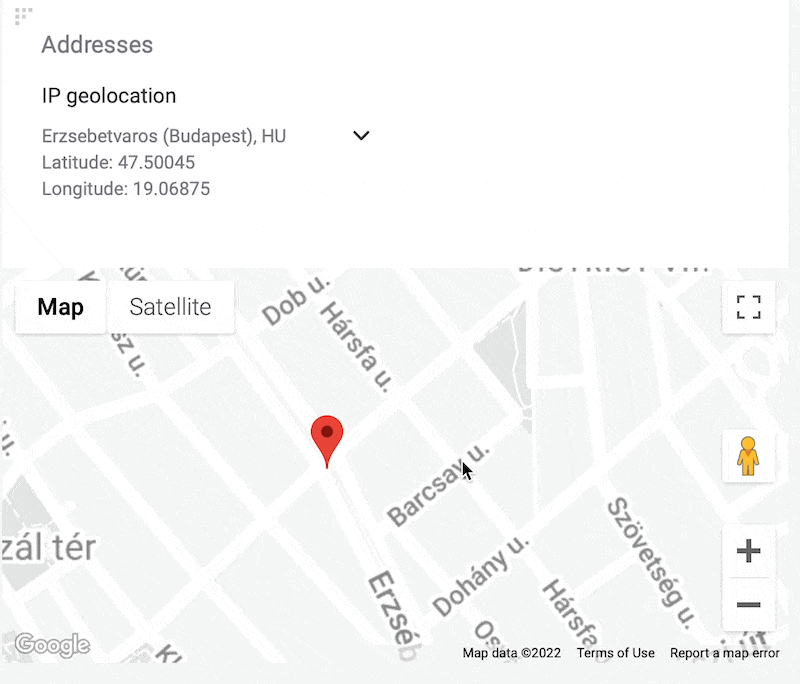
#3: Monitor User Devices and Browsers
We’ve looked at where users connect from with IP lookups, but it’s also important to check how they connect to your FX trading platform.
Forex exchanges and brokerages can deploy something called a device fingerprinting tool to expose your users’ device metadata.
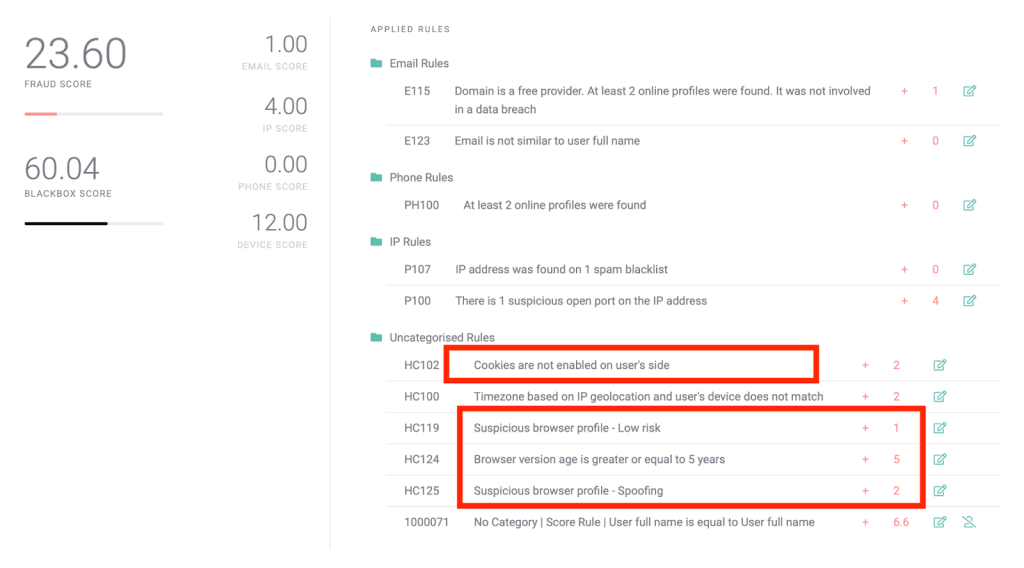
How exactly does it help with KYC?
Once again, you can identify malicious attempts by bad actors to hide their true devices. This can be done via privacy-enhancing browsers or emulators, which fraudsters rely on to create multiple online profiles from the same machine.
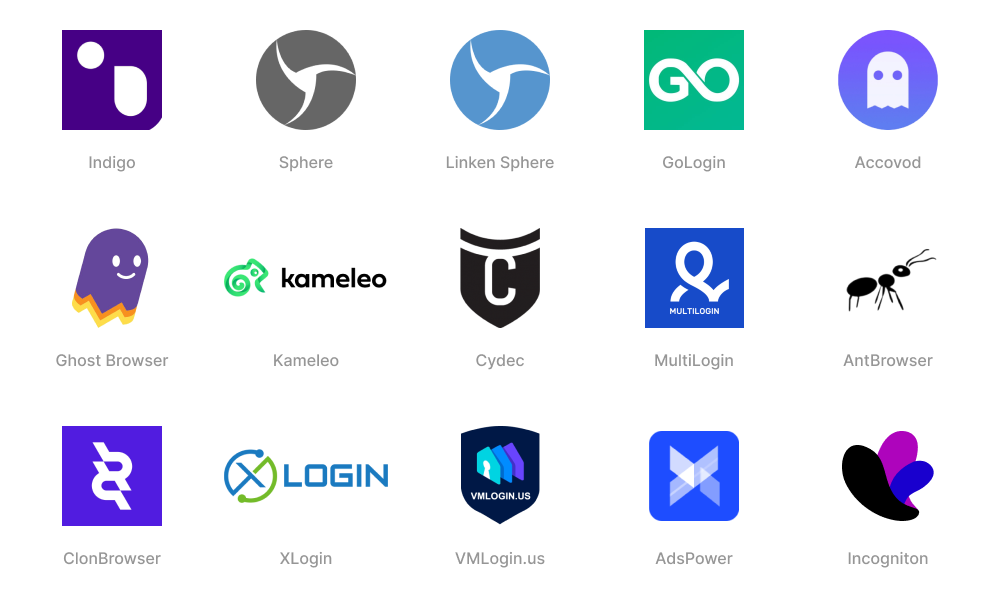
These browsers are designed to hide technical data such as user agent, cookies, and even IP addresses. Luckily, that spoofed data will also leave a trace, which can be identified if you know what you’re looking for.
Here again, the key is to deploy tools that can find suspicious data patterns.
With a platform like SEON, for instance, you can visualize connections between suspicious data points, and identify more fraudulent attempts over time and ultimately aid KYC automation.

How SEON Can Help Your Forex Trading Platform
SEON gives you complete control over your risk strategy for KYC & AML, and fraud prevention.
It is a modular tool that lets you extract as much data as possible from your users at any touchpoint, including during the onboarding, transaction and withdrawal stage.
The goal of all that data? To let you spot suspicious patterns and block fraud before it happens, whether it’s to:
- spot fake IDs and synthetic IDs
- protect your FX trading users’ accounts from takeovers
- reduce chargeback rates
- ensure compliance with specific legal requirements
- and more..
SEON lets you completely control your fraud rules, and even leverages machine learning to help you identify criminal patterns over time.
Ready to make your FX trading service fraud-proof? You can get started with SEON today by signing up for a free trial, no card required.
Case Studies
- Global Forex Trading Platform Slashes Chargeback Rates by 45% With No Extra Friction
- Xcoins Reduces Fraudulent Activity by 95%


